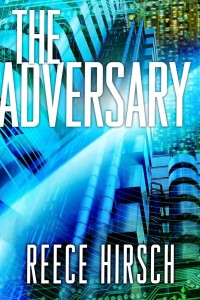By Steve Hooley
*Our website is having problems this morning, not allowing comments. Please check back later to see if the problem has been resolved. Sorry for the inconvenience, and thanks for stopping by.

I chose the topic of serialized fiction – a look back and a look forward – for today’s discussion, because Kindle has recently announced that it is entering the market. Vella is the name of Kindle’s new platform for serialized fiction. Let’s look at it, as well as some other sites, and then discuss reasons for considering serialization, and some creative ways to do so.
First of all, what is serialized fiction? The Free Dictionary defines it as “a novel, play, etc, presented in separate installments at regular intervals.” Wikipedia states, “In literature, a serial is a printing format by which a single larger work, often a work of narrative fiction, is published in smaller, sequential installments.”
The history is interesting, with serialization being around for several hundred years, since the development of movable type. Early authors who used it successfully include Charles Dickens, Wilkie Collins, and Sir Arthur Conan Doyle.
Here is a list of sites offering writers the opportunity to serialize their fiction:
Vella: Kindle Direct Publishing announced in April the launch of Vella and gave a brief description. Basically, writers (currently available to U.S. writers only) will use Kindle Direct Publishing as they already have, and where they can write or upload their stories to Vella. (See the second article below for many of the details.) It is available to writers now. Readers can access stories in the next couple months.
Readers will access Vella on their phones on the Kindle Vella app for iOS or Android, or on the Kindle Vella website on desktop. Readers can read the first three episodes for free. After that they will buy tokens to unlock additional episodes. Episodes can range from 600 to 5000 words, and the price will vary according to length of the episode.
Writers will receive 50% royalties from the tokens purchased. Some estimates of earnings showed a 3000-word episode (or chapter) would pay about $0.15. Extrapolated, a 30,000-word novella would equal $1.50 – 0.45 (first three episodes free) = $1.05. And a 90,000-word novel would pay $4.50 – 0.45 = $4.05.
Tokens can be purchased in larger quantities, decreasing their price, and decreasing writers’ royalties. And Kindle plans to sell the tokens through other channels, which will take a 30% cut, meaning the writer will earn 15% less
Here are links to articles with more detail:
https://selfpublishingadvice.org/self-publishing-news-what-is-kindle-vella/
https://blog.reedsy.com/kindle-vella/
Potential benefits include higher earnings than with Kindle Unlimited (time will tell), and the possibility of reaching a younger market (teens) who often don’t own a Kindle and read on their phones. Longer works would pay better, because the first three free episodes would be a smaller percentage of the whole. And the cost of cover art could be significantly less, with nothing more than an image required. (No text.)
Caveats from experienced writers include the fact that payment from Kindle has changed in the past, and apparently token prices have already been discounted in certain situations (benefiting Kindle, but decreasing royalties for writers).
Now to other sites. And here’s a link to a more detailed article:
https://medium.com/@eliangonz/serialized-fiction-190ef5f65bda
Royal Road: mostly Litrpg and Sci-Fi. No system for monetizing the stories. Stories must be approved to be published.
Pros: Decent interface. Good community.
Cons: No reading app. No monetization option.
Webnovel: Big site. Most popular genres are translations from Chinese romance novels. Writers are contracted to provide a minimum word count per month in order to get paid.
Pros: Good interface. Excellent reading app. Easy system to get featured. Responsive community on Discord. Lots of readers.
Cons: No straightforward monetization option.
Tapas: Good interface. Oriented toward comics. After getting 25 subscribers, writers can ask for donations to unlock the rest of the chapters.
Pros: Excellent interface. Excellent reading app. Straightforward monetization system.
Cons: More for comics. Getting featured is out of writer’s control.
Moonquill: new as of 5/19. Can monetize your work from get go with an ad system.
Pros: Good interface. Monetization system, but it had not been implemented as of 5/19.
Cons: Relatively new. Caters to authors already on Webnovel.
Wattpad: The biggest site. It has launched careers for some writers. Requires constant interaction with readers. Writers are using it to attract readers to their subsequent novels. Difficult to navigate. No monetization.
Pros: Biggest site with largest following.
Cons: Bad interface. No monetization.
Medium: Have to subscribe to read. Have a paid partnership program. Not a lot of serialized fiction.
Pros: Good interface. Easy to publish. Has a monetization option.
Cons: Subscription program for readers. Payment only through Stripe.
Radish: Has had issues with censorship and removal of works. Payment issues. Can’t edit stories once they are published. Mostly romance.
Pros: Pretty interface.
Cons: Problems with transparency, payment, and removal of content.
Dream:
Cons: Many people have advised against working with them. Require exclusivity. Concerns with payment after initial payment.
Patreon: JSB uses this site successfully for short stories. I asked him what he thought about using it for serialization. Here’s his answer: “Patreon isn’t a dedicated platform for short fiction. An author could certainly try to gain patrons for such a thing, as I have. But the lure of a Vella or a Radish is the potential to gain a huge following and, thus, some nice payouts.”
Reasons to consider serialization: Here’s one writer’s list of possible reasons (his opinions):
https://blog.usejournal.com/serial-storytelling-part-one-is-it-worth-it-6f6a94954afa
- If you have an experimental idea. For example, this writer was the first to publish a novel on a series of Twitter tweets.
- If you have access or can publish your serial on an established literary platform.
- You have a good fan base and the marketing know-how to make dollars at self-publishing.
- You have the will to transform serial storytelling into success no matter the risk.
But other than that, most articles came down to the conclusion that serialization has more potential for exposure, less potential for making money. And one author added the caveat that it may require a lot of interaction with readers.
The above writer who gave the list of possible reasons for serialization, also listed the following possible sites for serialization:
- Social media platforms
- Journals and anthologies
- Newspapers
- Blogs (he listed Medium – see above)
- Wattpad – he described as the “grandmother of it all.”
- Amazon (and that’s what Vella is)
Now it’s your turn:
- What serialized fiction sites did I miss?
- Do you plan to try Vella or one of the other sites?
- What has been your experience (or that of colleagues) with any of the sites? Pros and cons?
- What do you think the perfect site for serialized fiction would consist of?
- Bonus points: What creative alternatives can you think of for serialized fiction? Example: convincing your local library to serialize local writer’s stories on a weekly library blog.

